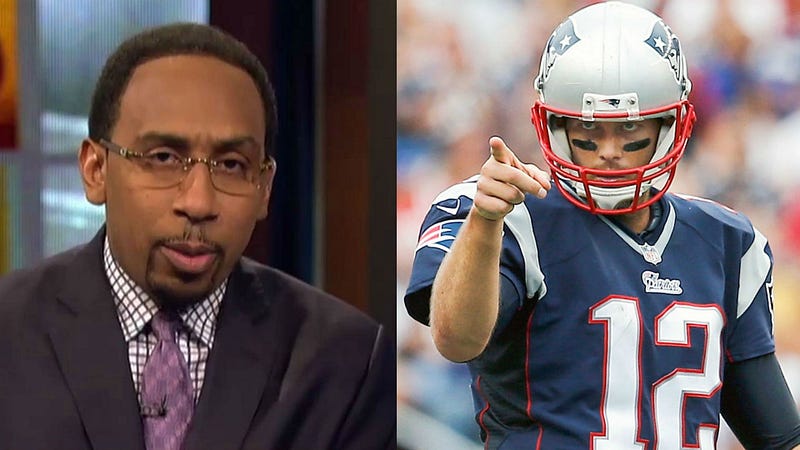
Earlier this week, Former NFL quarterback Tom Brady appeared on Stephen A. Smith’s podcast. In the interview, Brady called out the state of the league saying, “there’s a lot of mediocrity in today’s NFL.
“He’s not wrong. 12 weeks into the season we still do nothave a true contender. Every team seems to have some hole, even perennial favorites like the Chiefs and Bills. The 10–1 Eagles lost to the pitiful Jets. Brady went on to blame the lack of pregame preparation and lack of effort to avoid injury amongst current players. Is this true? Is this just another case of an older athlete resenting the young? What’s changed, and why is the NFL so weird this season?
There are some causes that are easy to spot. The expansion to 17 games and 14 playoff spots clearly devalue the regular season. However, the real reason this season feels so off has to do with three things: rule changes, the CBA and the quarterback. Firstly, the past decade has seen various changes meant to ensure greater player safety following lawsuits and research over concussions. Referees are stricter regarding hits to the quarterback and lowering the head before hitting another player. There’s nothing wrong with safety. However, anytime you change a system, you incentivize players to change behaviors. This is something Brady talked about with Smith. He would not throw to parts of the field because he knew doing so jeopardized a big hit on one of his receivers. The threat of danger made him play smarter and safer. That kind of thought process is out the window now, and so we have a league of players playing with less fear and therefore playing more dangerously. How else have the rules created riskier behavior?
In the 2021 CBA, the number of padded practices in training camp was reduced from 28 to 16. This is a critical issue in negotiations because more of these practices increases the risk of injury before games are even played. Before the 2011 agreement, teams had no limits and even held infamous “two-a-day” practices. While this move is (seemingly) good for player health, it has come at the expense of offensive line play. Quarterbacks can throw to their receivers in t-shirts and shorts, kickers can practice field goals anytime they want but the offensive line is different. It is a position defined by giving and receiving big hits. Reducing their ability to practice and build chemistry as a unit impedes their ability to develop. It is no wonder why teams with older offensive lines like the Eagles and Lions are among the league’s elite units. Worse line play severely affects the sport’s most important position: quarterback.
Finally, as the quarterback has become more central to the offense, it’s made not having or losing an elite passer all the more dire. This has led to the explosion of salaries with players like Joe Burrow and Patrick Mahomes set to earn as much as a quarter of the salary cap on a 55 man roster. It means that once a quarterback is off his rookie deal, his team cannot supply him with as many elite pass catchers, linemen and defenders. It is why Tyreek Hill jumped ship for the Dolphins after the Chiefs signed Mahomes to a historic 10 year $503 million extension. Most elite quarterbacks are now on big budget extensions and are surrounded with worse pieces. The exceptions are the over-performing Bengals, Eagles and Dolphins, but they will all soon be forced to pay or previously signed extensions will begin kicking in. In the modern NFL, it seems you can have a good quarterback or a good roster and never both.
At the same time, worsening offensive line play has incentivized quarterbacks to run more. It is why we see more short quarterbacks like Kyler Murray and Russell Wilson and fewer pocket passing tanks like Peyton Manning and Philip Rivers of yesteryear. It has created faster, more dynamic offenses, as every skill position represents a scoring threat. Still, this innovation does not come without consequences. Because we have incentivized quarterbacks to take greater risks, they are more likely to become injured. Already, Joe Burrow, Daniel Jones, Aaron Rodgers, Deshaun Watson, Anthony Richardson and Kirk Cousins have been knocked out for the year. It is because we increasingly ask quarterbacks to play more dangerously behind ill-prepared linemen.
The end result is a lot of bad injuries and a lot of bad backups taking snaps. At the end of the day, none of this should surprise us. The league is working as it was designed. The reason the NFL dominates is that, on any given Sunday, any team can beat any other. That kind of parity makes long term success unsustainable and why dynasties like Brady’s Patriots are so rare. Still, as the league looks to change rules to increase revenue with games abroad or expanding the season, it threatens the league’s core product. If the NFL becomes a league of backup quarterbacks running for their lives, the product will suffer. Audiences are never guaranteed. If you don’t believe me try to ask a baseball fan.
















